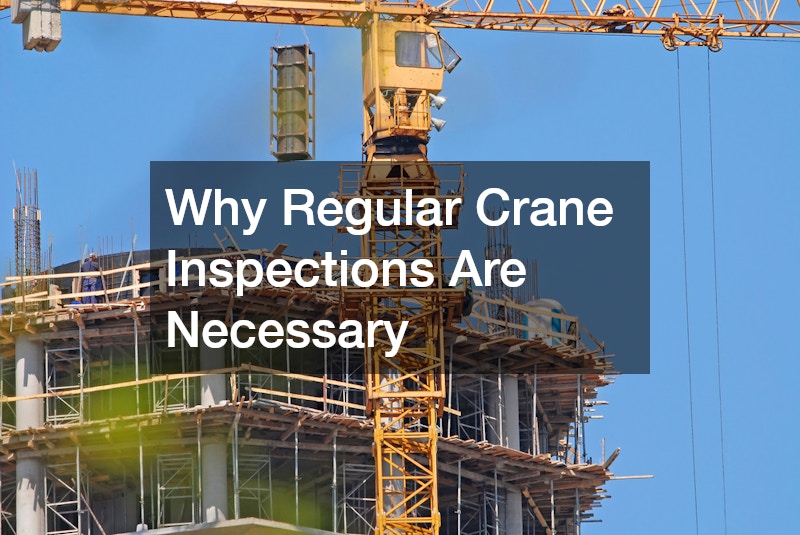Crane inspections are a critical component of maintaining a safe and efficient work environment, especially in industries where lifting heavy loads is a daily task. Regular inspections ensure that cranes are operating safely, prevent costly downtime, and help comply with regulatory requirements. Here’s why regular crane inspections are necessary and how they benefit your operations.
Ensuring Safety
The primary reason for regular crane inspections is to ensure the safety of both workers and equipment.
Cranes are complex machines with multiple moving parts that bear heavy loads. Any malfunction, whether it’s a frayed wire rope, worn-out brake pads, or a faulty control system, can lead to catastrophic accidents. Regular inspections help identify these issues before they lead to equipment failure, reducing the risk of accidents that could result in injuries or fatalities. By routinely checking the condition of the crane, you can be confident that it is functioning properly and that the safety of everyone on-site is prioritized.
Preventing Costly Downtime
Unplanned downtime due to crane failure can be incredibly costly, disrupting operations and leading to financial losses. Regular crane inspections help prevent this by identifying potential problems early. When issues are detected and addressed during a scheduled inspection, it reduces the likelihood of unexpected breakdowns during critical operations. This proactive approach to maintenance keeps your cranes in good working condition, ensuring that your project timelines stay on track and minimizing the risk of costly interruptions.
Compliance with Regulations
In many industries, crane inspections are not just recommended—they are required by law. Regulatory bodies such as the Occupational Safety and Health Administration (OSHA) in the United States mandate regular crane inspections to ensure workplace safety. Failure to comply with these regulations can result in hefty fines, legal action, and even the shutdown of your operations. Regular inspections help ensure that your cranes meet all legal requirements, avoiding penalties and demonstrating your commitment to safety standards.
Extending Equipment Lifespan
Cranes are a significant investment, and regular inspections help protect that investment by extending the lifespan of the equipment. Identifying and addressing wear and tear before it becomes severe prevents more extensive damage that could shorten the crane’s operational life. Regular maintenance, as part of the inspection process, ensures that the crane remains in optimal condition, reducing the need for costly repairs or early replacement.
Improving Efficiency
A well-maintained crane operates more efficiently, leading to smoother operations and better overall productivity. Regular inspections ensure that all parts of the crane are functioning as they should, from the hoist to the control systems. When a crane is in peak condition, it can lift and move loads with greater precision and speed, contributing to a more efficient workflow.
